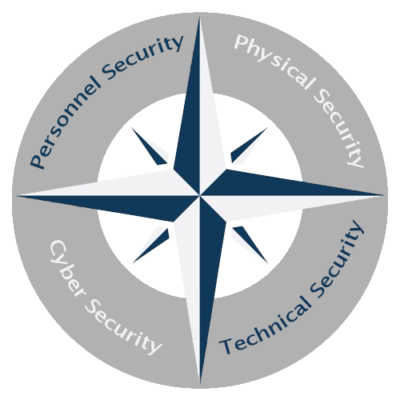Education and learning are key components in the ongoing professionalisation of our industry.
Read about our initiatives, our courses and gain insights into the wider security sector here.

Security is an incredibly diverse field, with multiple routes to entry for seasoned professionals and beginners alike.
Our Career Pathways in Security page is designed to help you make the most out of your career, and aligns with our core pillar of Professionalisation within the industry.
To learn more about how to get the best out of your skills, click here.



The Security Institute promotes and encourages continued professional development through education.
In conjunction with our partners PerpetuityArc, we offer a range of security courses and qualifications designed to improve and professionalise our industry.
To read more about our courses, click here.

As of 31st August 2025, The Security Institute has ceased to offer SABRE. Support for existing projects was maintained until this date.
Individuals or organisations wishing to discuss the future of the SABRE scheme are advised to contact BRE directly at:
📧 customerservices@bregroup.com


The Security Institute is committed to promoting high standards of professionalism, competence, and ethical practice across the security sector.
Continuing Professional Development (CPD) enables members to maintain and enhance their skills, knowledge, and professional judgement throughout their careers. Through structured learning, reflective practice, and meaningful professional activity, CPD supports individual development while strengthening confidence in the profession as a whole.
This page sets out the updated CPD framework, which takes effect from 1 January 2026, and explains how members can plan, record, and evidence their ongoing professional development.
To find out more, read about it here.
The Protective Security Adviser Apprenticeship is a new qualification that has been developed by the Trailblazing Group, made up of stakeholders from the Government including the National Protective Security Agency (NPSA), the National Cyber Security Centre (NCSC) and the UK National Authority for Counter-Eavesdropping (UK NACE), Business, Academia and Security Organisations, including The Security Institute.
Details of the content of the new standard and the current status can be found here:
Protective Security Adviser / Institute for Apprenticeships and Technical Education
You will see that the Institute for Apprenticeships and Technical Education (IfATE) has approved the occupational standard and end-point assessment plan. We are now at the final stage of waiting for levy funding approval before it becomes available which is expected to be in the summer of 2025.
The Security Institute is proud to host the core information related to the Protective Security Adviser Apprenticeship as part of our three pillars of membership, professionalisation and influence.

SFJ Awards Level 4 Protective Security Adviser Certificate
On the back of the success of the apprenticeship content, the Trailblazer group have also worked with SFJ Awards to develop an equivalent Level 4 certificate. We expect this qualification to be in the Ofqual catalogue of regulated qualifications for England, Wales and NI from 1 May 2025.
SFJ Level 4 Certificate for Protective Security Advisers
To read more about the Level 4, click here.